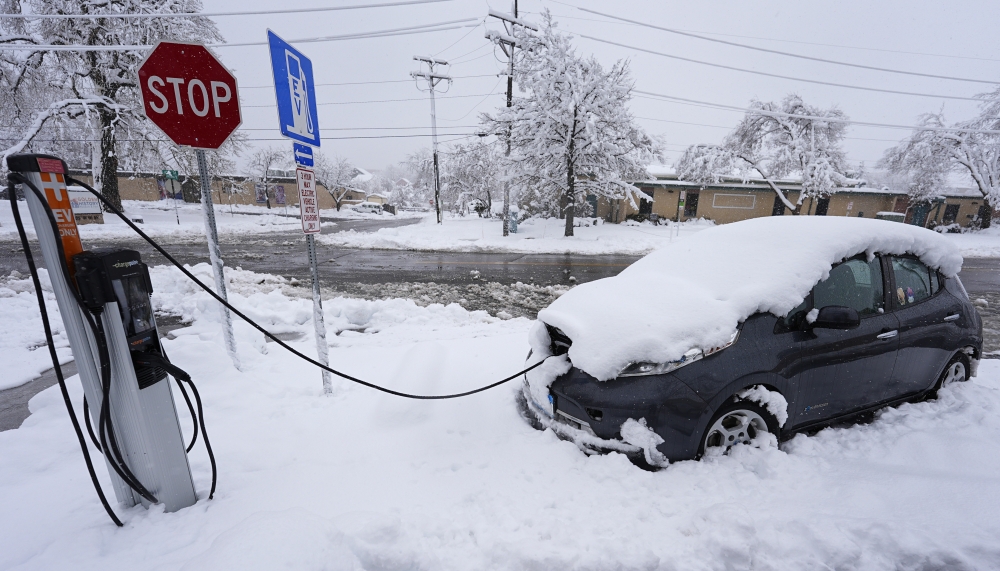
“Amazing banana.”
It was a colorful term, as one climate scientist said described 2023, hottest year on record Then came 2024, which will likely set fire to the short-lived record set the previous year.
The effects of climate change are evident here in Maine. Winter is getting shorter. Ice melts more quickly in lakes and rivers. Tick infestations escalate. Sea levels are rising and severe storms are devastating coastal communities facing tens of millions of dollars in cleanup and rebuilding costs — part of multibillion-dollar disasters that have become the norm across the country.
Maine’s major business sectors – tourism, agriculture, forestry and fishing – must reset for the future as floods, droughts and fires multiply, intensify and destroy. In the wake of a national election in which 80 million Americans called for less focus on climate, federal leadership on the issue may soon end, and the funds supporting energy transitions and their incentives are likely to decline dramatically. These changes will push activism to the state and local levels, requiring us to work together more collaboratively.
Help is on the way. In November, Maine Governor Janet Mills and the Maine Climate Council issued a report on the issue Updated state climate action plan, Maine Won’t Wait 2.0 The new state plan outlines strategies to accelerate Maine’s transition to clean electricity and transportation, smarter and more efficient buildings, investments in technology and infrastructure, and economic growth through concerted and coordinated climate action. Its recommendations seek to protect natural lands and waters and the communities and workers who depend on them for their personal and professional lives.
This plan and others serve as models for the rest of the country. In December, the Governor’s Office of Energy It released a draft energy roadmap To put the state on a path to 100% clean electricity by 2040 while stabilizing energy costs, enhancing infrastructure resilience and reliability, reducing dependence on fossil fuels, creating jobs and growing Maine’s economy.
But plans are not enough without implementation and work. Maine businesses, towns and residents are taking action. These efforts harness the enormous influence of the private, public, and non-profit sectors for an economically beneficial, carbon-constrained future. Climate change directly impacts the livelihoods and well-being of all Mainers. The governor expects clean energy jobs to double by 2030. However, there may be a downturn in other sectors of our economy, creating some economic challenges during the transition period.
We can and must do our part by seizing opportunities. Dozens of Maine’s top business leaders and experts have been advising the state’s Climate Council, and these same people, along with tens of thousands more, are changing the way we build, heat, and move things.
The non-profit sector is also involved: Climate Action Maine and E2Tech Board Each was created to support change. ClimateWork Maine helps Maine businesses grow and communities and individuals succeed in a carbon-constrained economy. The Environment and Energy Technology Council (E2Tech) has been promoting business development, professional relationships and the green economy for more than 20 years.
Together, we can help Maine adapt, compete, grow new businesses, and manufacture new products for the climate era while ensuring existing and legacy companies remain strong. In the coming years, our members will expand and strengthen our efforts to promote and support a vibrant and resilient economy, helping to create and sustain good jobs for residents of all ages and types.
We look forward to working with state, business and community leaders to be a coordinating, unifying and mobilizing force to highlight the urgent need for climate and energy action, demonstrate how investment and innovation can leverage private capital, drive job creation and underscore Maine’s importance. Leadership in the global low-carbon economy.
As we begin 2025, we believe Maine has the potential to unite business and community leaders across the state in meaningful climate action. We invite you to join us in shaping the future so that we can, yes, achieve “amazing success.”
Copy the story link






